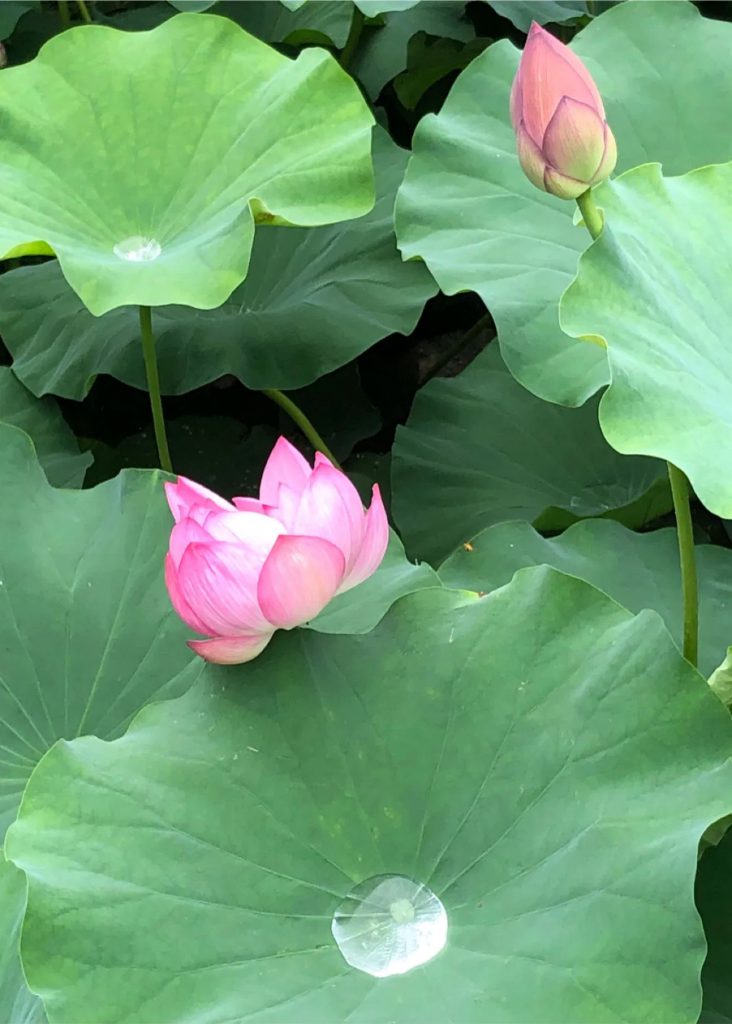
The Japan Meteorological Agency announced yesterday (14th) that “the Kanto Koshin region seems to have entered the rainy season.” It is 7 days later than normal and 3 days later than last year, and it is the 10th latest rainy season since the start of statistics in 1951. It is a month behind the Kinki Chugoku region. In fine weather, when I went to a nearby park, many lotus flowers were in bloom in the lotus pond, and honeydew was full just in the center of the big leaf. Honeydew is a translation of the Sanskrit word Amrita, which is considered to be an elixir of immortality in the tradition of Indian mythology. This was transmitted to China, and when Tenshi administers benevolent rule, it changed to the meaning of honeydew that Heaven feels it and falls from there. Immortality does not mean that you will not die, but that you realize the continuity of death from life. There are many words with honeydew, but it is not surprisingly known that the maxim “If you wait, there is a sunny day on the sea route” is actually “If you wait, there is a sunny day for honeydy”.
気象庁は昨日(14日)、「関東甲信地方が梅雨入りしたとみられる」と発表しました。平年より7日遅く、昨年より3日遅い梅雨入りで、1951年の統計開始来、10番目に遅い梅雨入りと言うことです。近畿中国地方よりまる1か月遅れです。晴天下、近くの公園に行くと蓮池には沢山の蓮の花が咲いていて、大きな葉にはまさしく甘露が溜まっています。甘露とは梵語のアムリタの訳で、インド神話の伝承で不老不死の霊薬とされたものを指します。これが中国に伝わり、天子が仁政を施すと、天が感じて降らす甘い露と言う意味に変化します。不老不死の不死とは死なないと言う意味ではなく、生から死の連続性を悟る境地を指します。甘露の付く言葉は沢山ありますが、格言の「待てば海路の日和あり」は実は「待てば甘露の日和あり」であることは意外に知られていません。
